Across the hills and valleys of healthcare, the rising power of the consumer has reshaped the landscape more than any other market shift in recent memory. Patient preferences are fueling demand for everything from virtual care to retail-store clinics. For urgent care, the innovations represent thrilling opportunity alongside equal measures of competition. The ratio of wins to losses will vary by market. Yet even with the large-scale disruption, urgent care has grown with intention, both …
Read More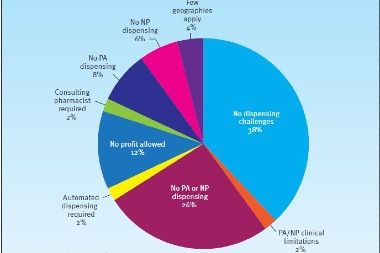
In-Office Dispensing: The Good, the Bad, and the Unlikely
On paper (so to speak), in-office prescribing in the urgent care center would seem to be a no-brainer for all concerned: patients could avoid the time-consuming hassles of navigating the retail drugstore morass and head straight home with their medication, and providers could be assured that their patients got the right medication in a timely manner and could be the responsible parties to answer any questions they may have—all while collecting a modest profit. That’s …
Read More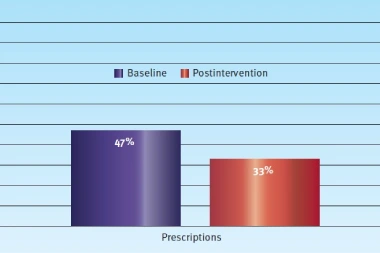
There’s No Casual Approach to Improving Antibiotic Stewardship—but When You Make the Effort, It Works
Improving antibiotic stewardship was an industry-wide mandate even before a 2018 study indicated that urgent care appeared to be more likely than other settings to overprescribe for common infections. While the methodologies could be questioned, especially in their take on the nature of urgent care visits, the point was well taken. Since then, urgent care as a whole has sought to improve providers’ prescribing habits more aggressively than ever. The initial awareness campaigns did a …
Read More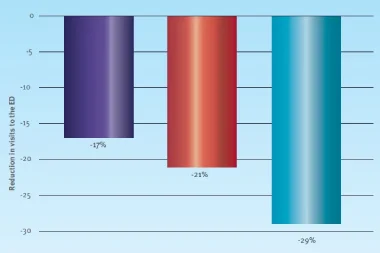
That Notion That Urgent Care Centers Help Volume in the ED? It’s True
One of the key “selling” points of urgent care has always been that if patients who don’t have limb- or life-threatening concerns are able to get acute care someplace other than the emergency room, they would go there, thereby lowering cost, wait times, and risk associated with the ED. Now there’s evidence to support the first part of this premise, thanks to a new report from Mesirow Investment Banking. As seen in the graph below, …
Read More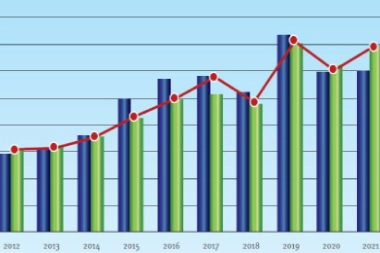
The 10-Year Trend on UC Claim Lines Is Strong—in the City and in the Country
Download the PDF: The 10-Year Trend on UC Claim Lines Is Strong—in the City and in the Country . Believe it or not, just a decade ago urgent care accounted for barely 6% of all claim lines in the United States. There was little difference between rural and urban settings, too. New research from FAIR Health1 shows that the picture changed dramatically in 2015, though, as the percentage of claim lines attributed to urgent care …
Read MoreDespite Challenges, Urgent Care Acuity Remains High
There’s been a bit of discussion in the urgent care industry (including in JUCM articles of late) concerning a perceived degradation of acuity in urgent care practice. The worry is that in the service of getting a maximum number of patients in and out the door quickly, some patients with more than minimally complicated complaints are advised to visit the closest emergency room when they could just as safely (and more cost-effectively) be treated in …
Read More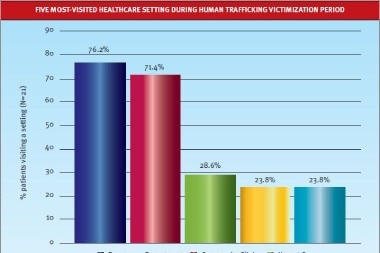
Healthcare Visits by Victims of Human Trafficking Are Limited, but Often Include Urgent Care
As noted in this month’s cover article (Human Trafficking in the Urgent Care Setting: Recognizing and Referring Vulnerable Patients), isolation is one of many tools perpetrators use to control victims of human trafficking. Certainly this includes limiting access to healthcare. Not surprisingly, when care is necessary it’s not likely to be sought in a primary care office. Rather, busy acute care sites that offer walk-in access and relative anonymity tend to be preferred—with urgent care …
Read More
COVID-19 Has Had a Strong Impact on Pediatric Presentations—Well Beyond the Virus Itself
The effects of SARS-CoV-2 itself on various populations in the United States and internationally have been well-documented. Likewise, an ever-growing number of studies have measured the effects of the pandemic on healthcare, the workforce, children’s education…and on and on. One fact that has been largely overlooked: While social distancing and mask mandates helped reduce spread of COVID-19, with the unintended benefit of reducing the number of cases of other infectious diseases, they did nothing …
Read More
Evolution of the Urgent Care Staffing Model During the COVID-19 Pandemic
The scourge of the COVID-19 pandemic has affected urgent care practices deeply, beyond what you already know firsthand. In addition to fluctuations in patient visits, efforts to keep staff safe, and reorganizing locations to meet whatever need was greatest at a given moment, the “typical” urgent care staffing model evolved at an accelerated pace between 2019 and today. The proportion of centers in which physician assistants and nurse practitioners treat patients with only remote …
Read More
STIs Are Epidemic in the U.S.—but How Many of Those Patients Are Going to Urgent Care?
If you read this issue’s cover article on how important urgent care is in fighting the current surge of sexually transmitted infections in the United States, you know that we are in the midst of an STI epidemic. (And if you didn’t read it, you should turn to page X to do so after you’re done here.) Sure, there have been demographic shifts in healthcare preferences; more Americans than ever (especially in the younger …
Read More